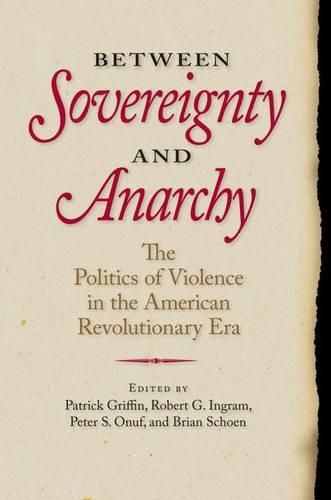Readings Newsletter
Become a Readings Member to make your shopping experience even easier.
Sign in or sign up for free!
You’re not far away from qualifying for FREE standard shipping within Australia
You’ve qualified for FREE standard shipping within Australia
The cart is loading…






Between Sovereignty and Anarchy considers the conceptual and political problem of violence in the early modern Anglo-Atlantic, charting an innovative approach to the history of the American Revolution. Its editors and contributors contend that existing scholarship on the Revolution largely ignores questions of power and downplays the Revolution as a contest over sovereignty. Contributors employ a variety of methodologies to examine diverse themes, ranging from how Atlantic perspectives can redefine our understanding of revolutionary origins; to the ways in which political culture, mobilization, and civil-war-like violence were part of the revolutionary process; to the fundamental importance of state formation for the history of the early republic.
The editors skillfully meld these emerging currents together to produce a new perspective on the American Revolution, revealing how America-first as colonies, then as united states-reeled between poles of anarchy and sovereignty. This interpretation-gleaned from essays on frontier bloodshed, religion, civility, slavery, loyalism, mobilization, early national political culture, and warmaking-provides a needed stimulus to a field that has not strayed beyond the bounds of
rhetoric versus reality
for more than a generation. Between Sovereignty and Anarchy raises foundational questions about how we are to view the American Revolution and the type of experimental democracy that emerged in its wake.
$9.00 standard shipping within Australia
FREE standard shipping within Australia for orders over $100.00
Express & International shipping calculated at checkout
Between Sovereignty and Anarchy considers the conceptual and political problem of violence in the early modern Anglo-Atlantic, charting an innovative approach to the history of the American Revolution. Its editors and contributors contend that existing scholarship on the Revolution largely ignores questions of power and downplays the Revolution as a contest over sovereignty. Contributors employ a variety of methodologies to examine diverse themes, ranging from how Atlantic perspectives can redefine our understanding of revolutionary origins; to the ways in which political culture, mobilization, and civil-war-like violence were part of the revolutionary process; to the fundamental importance of state formation for the history of the early republic.
The editors skillfully meld these emerging currents together to produce a new perspective on the American Revolution, revealing how America-first as colonies, then as united states-reeled between poles of anarchy and sovereignty. This interpretation-gleaned from essays on frontier bloodshed, religion, civility, slavery, loyalism, mobilization, early national political culture, and warmaking-provides a needed stimulus to a field that has not strayed beyond the bounds of
rhetoric versus reality
for more than a generation. Between Sovereignty and Anarchy raises foundational questions about how we are to view the American Revolution and the type of experimental democracy that emerged in its wake.